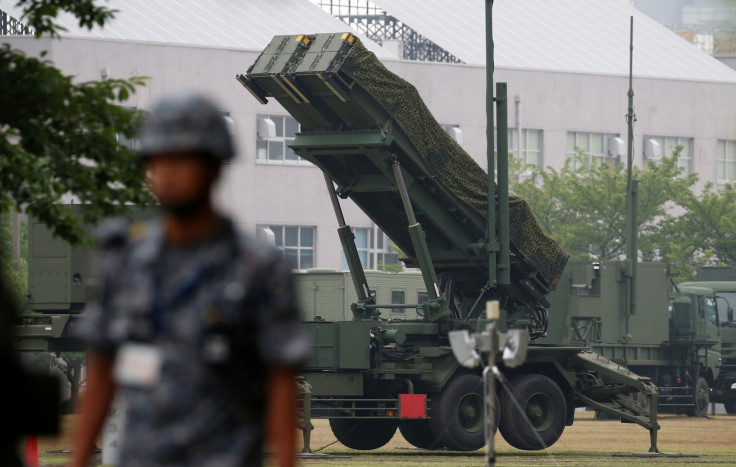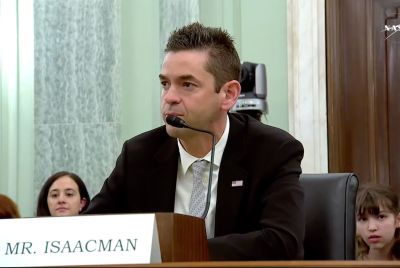Japan mobilises Patriot missile interceptors and deploys destroyer to counter North Korea threat
Tokyo deploys destroyer equipped with Aegis radar system in Sea of Japan, where North Korean missile landed.

Japan has mobilised several Patriot missile interceptor units inside the country in order to counter any threat from North Korea. Tokyo has also deployed a fully equipped destroyer in the Sea of Japan or the East Sea.
Japan's newly appointed Defence Minister Tomomi Inada has ordered the military to step up their alertness without exactly divulging whether Pyongyang is preparing for any missile launch in the near future, reports the state-backed broadcaster NHK. The government has not yet denied the report.
The ministry has also sent an advanced destroyer equipped with Aegis radar system to the Sea of Japan, where one of North Korea's medium-range Rodong missiles landed recently.
The Patriot Advanced Capability-3 (PAC-3) units are often dispatched by Japan whenever there is a perceived threat from Pyongyang. The anti-missile systems are usually withdrawn shortly after the threat alert is lifted. The NHK report said Tokyo is planning to keep the missile shield units for at least the next three months. The location of the deployment will be reviewed by the defence forces.
Japan's deployment of the PAC-3 units has come a week after the North fired two intermediate-range missiles. While the first one is thought to have exploded shortly after the launch, the second missile landed in Japan's territorial waters triggering a sharp response from Tokyo.
Soon after North Korea's defiant acts, Japan's Prime Minister Shinzo Abe said: "The missile seems to have fallen in our country's exclusive economic zone and posed a grave threat to our country's security. It is an unforgivable, reckless act."
Pyongyang's actions are seen as a desperate response to the US and South Korea's joint decision to deploy the sophisticated Terminal High Altitude Area Defense (Thaad) missile system in the Korean peninsula.
Amid the developments in Japan, Seoul has said dozens of "jamming-proof" surface-to-ground Taurus missiles, which can be fitted on F-15K fighter jets, would be deployed. "Taurus missiles combined with GPS receivers and the flight termination system, or FTS, will be deployed in two to three months with the Air Force," a defence official, who is closely associated with the deployment, told South Korea's Yonhap news agency, adding that this would significantly bolster Seoul's strike capabilities.
© Copyright IBTimes 2025. All rights reserved.






















